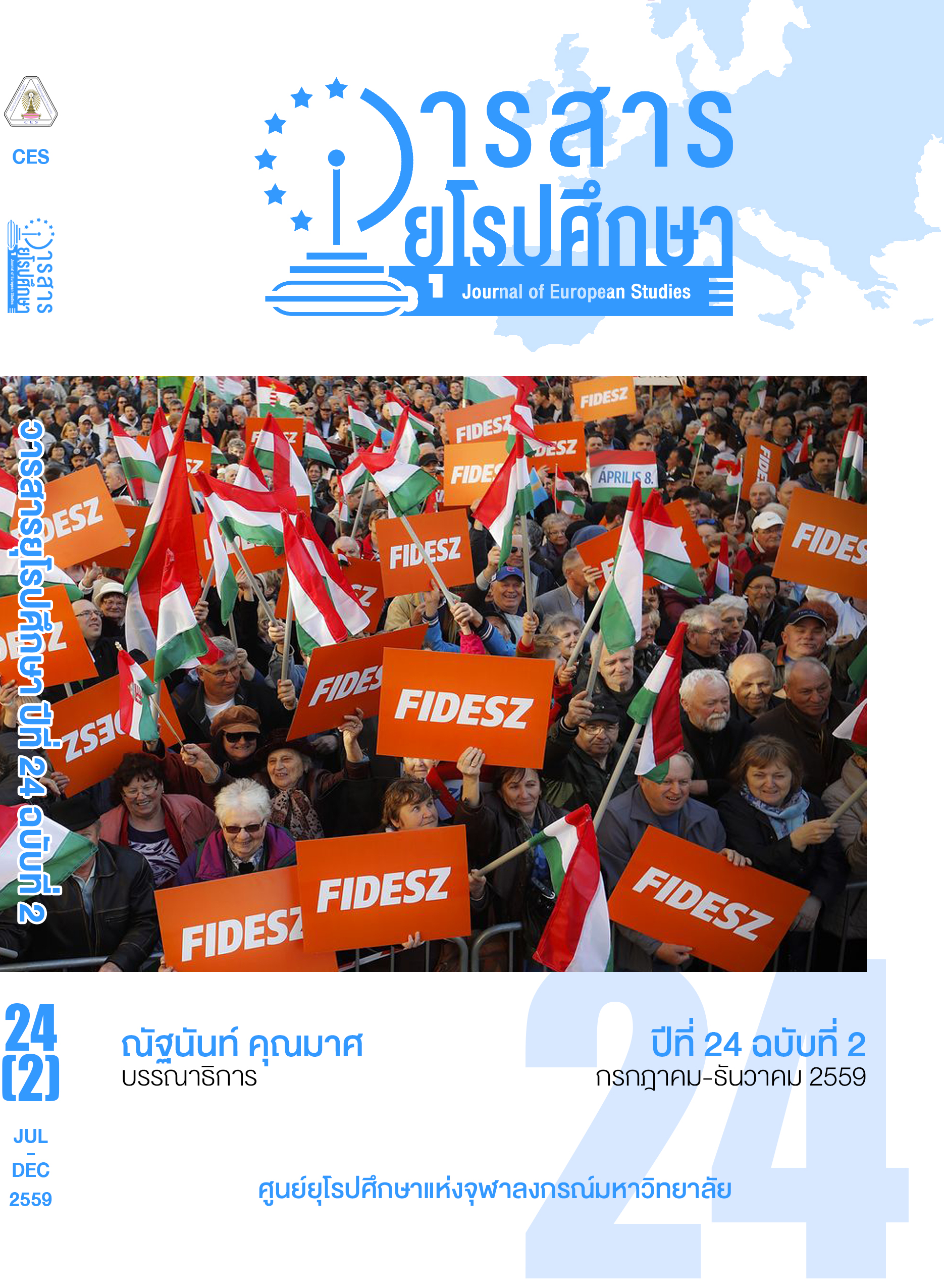นัยของความหวาดกลัวอิสลามต่อกระแสต่อต้านสหภาพยุโรปในประเทศกลุ่มวิเชอกราด กรณีศึกษา: ฮังการี
บทคัดย่อ
This paper aims to explain the political development of Euroscepticism and the dynamic of Islamophobia in Visegrád Group countries by examining Hungary as the case study in particular in the times of European refugee crisis, followed by their implications for the possibility of Hungary leaving the European Union (“Hungaleave”) following the Brexit referendum. The first section of this paper will discuss the correlation among various variables amidst the largest refugee crisis in Europe since the Second World War, including Islamophobia in conservative Christian nations, role of Hungary as a transit country amidst the refugee crisis, and the perplexity of the Common European Asylum System. It will subsequently discuss the dynamic of Euroscepticism in Central and Eastern Europe, challenge to Europeanisation, and its implications for the landslide victory of Hungarian referendum in opposing refugee resettlement quota plan. Furthermore, this paper will outline several reasons for Hungary leaving the European Union by exploring numerous political actors from various dimensions. On the other hand, it will also delineate certain grounds for Hungary remaining in the Union by principally addressing the relatively high dependence of Hungary on financial support from the European Union. The last section of this paper will end up assessing the overall possibility of Hungary leaving the European Union.



